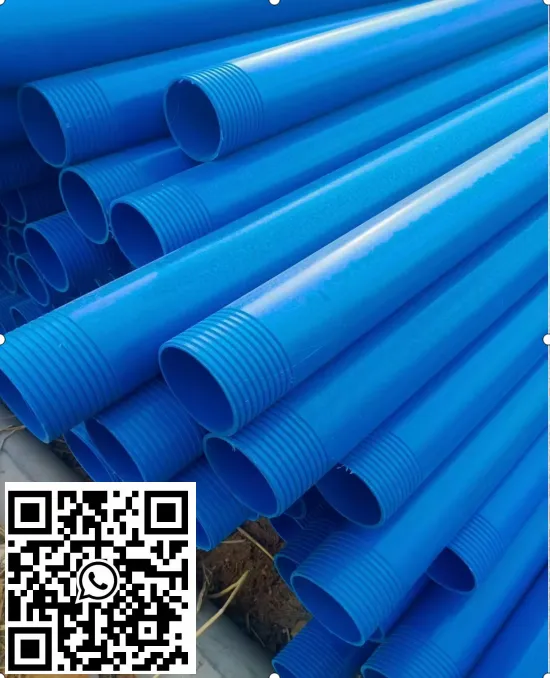Dec . 04, 2024 15:26 Back to list
HDPE Pipe Solutions for Safe and Reliable Drinking Water Supply Systems
High-Density Polyethylene (HDPE) Pipe for Potable Water
High-Density Polyethylene (HDPE) pipes have gained significant popularity in the plumbing and water management industries, especially for potable (drinking) water applications. As concerns about water quality, durability, and environmental sustainability continue to rise, HDPE pipes offer a robust solution that combines excellent performance with safety and flexibility.
What is HDPE?
HDPE is a thermoplastic polymer made from petroleum. It is known for its high strength-to-density ratio, making it one of the most durable materials for piping systems. HDPE is resistant to impacts and can withstand extreme temperatures, which ensures longevity and reliability in various climatic conditions.
Advantages of HDPE Pipes for Potable Water
1. Safety and Non-Toxicity One of the prime reasons HDPE pipes are favored for potable water applications is their non-toxic nature. HDPE material does not leach harmful chemicals into the water, making it safe for human consumption. This characteristic is crucial, particularly in areas where water quality is a significant concern.
2. Corrosion Resistance Unlike metal pipes which can rust and corrode, HDPE pipes are naturally resistant to corrosion. This property prevents the pipes from degrading over time, ensuring that the water remains uncontaminated. This is particularly important when transporting potable water over long distances.
3. Flexibility and Lightweight HDPE pipes are remarkably flexible, which facilitates easier installation in various terrains. Their light weight compared to traditional materials like PVC or steel reduces transportation costs and labor requirements during installation.
4. Durability The high resistance to wear and tear makes HDPE pipes an ideal choice for long-term applications. With a lifespan that can exceed 50 years, these pipes can endure substantial pressure and harsh environmental conditions, including exposure to chemicals, UV rays, and extreme weather.
5. Cost-Effectiveness Though the initial investment in HDPE pipes may be slightly higher than alternatives, their long lifespan and low maintenance requirements often make them the more economical choice over time. The reduced likelihood of leaks and breaks translates into lower repair costs and less downtime for water supply systems.
hdpe pipe for potable water products

6. Network Integration HDPE pipes can be easily fused together using techniques like butt fusion or electrofusion, resulting in a seamless pipeline. This capability reduces the risk of leaks at joints and enhances the overall integrity of the water distribution system.
Environmental Impact
As environmental sustainability becomes an increasingly important consideration in construction and infrastructure development, HDPE pipes stand out due to their eco-friendly properties. They are recyclable and can be repurposed at the end of their life cycle, reducing the environmental footprint. Additionally, the use of HDPE in water distribution systems can help minimize water loss due to leakage, thereby conserving precious freshwater resources.
Regulatory Compliance
In many countries, the use of HDPE pipes for potable water supply is regulated to ensure safety and quality. Certifications, such as the NSF/ANSI 61 standard in the United States, confirm that HDPE pipes are safe for drinking water. These regulations help build customer confidence in the materials used for water distribution, ensuring that public health is a priority.
Applications
HDPE pipes are utilized in various potable water applications, including residential water supply, municipal water systems, and irrigation projects. Their versatility and reliability make them suitable for both urban and rural environments, enabling efficient water transportation to meet consumer needs.
Conclusion
High-Density Polyethylene pipes have revolutionized the way potable water is transported and managed. Their safety, durability, and cost-effectiveness make them an excellent choice for utilities and municipalities tasked with ensuring clean drinking water. As technology continues to advance and the importance of sustainable practices grows, HDPE pipes will likely remain at the forefront of modern plumbing solutions. By choosing HDPE for potable water systems, communities can safeguard their water quality while investing in a durable and environmentally friendly infrastructure.
-
High-Quality PVC Borehole Pipes Durable & Versatile Pipe Solutions
NewsJul.08,2025
-
High-Quality PVC Perforated Pipes for Efficient Drainage Leading Manufacturers & Factories
NewsJul.08,2025
-
High-Quality PVC Borehole Pipes Durable Pipe Solutions by Leading Manufacturer
NewsJul.08,2025
-
High-Quality PVC Borehole Pipes Reliable PVC Pipe Manufacturer Solutions
NewsJul.07,2025
-
High-Quality UPVC Drain Pipes Durable HDPE & Drain Pipe Solutions
NewsJul.07,2025
-
High-Quality Conduit Pipes & HDPE Conduit Fittings Manufacturer Reliable Factory Supply
NewsJul.06,2025

